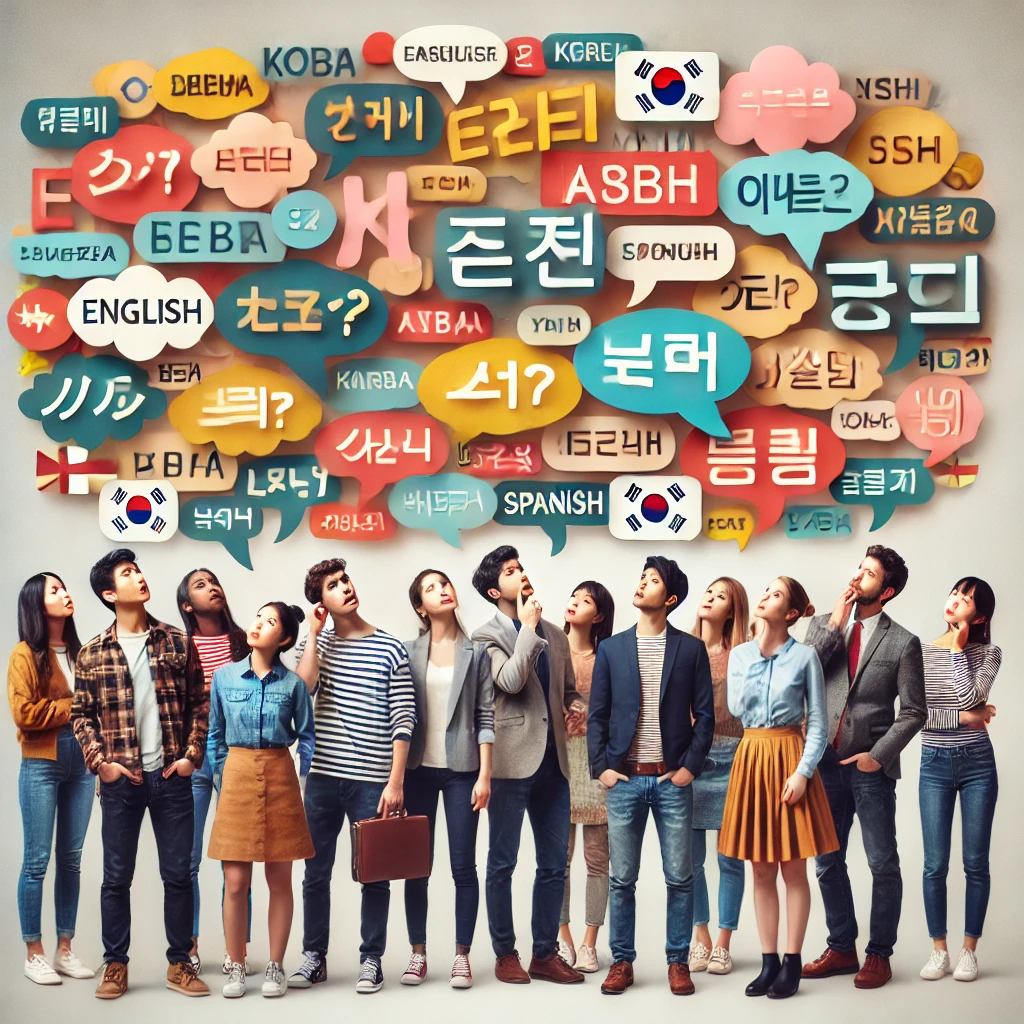
These Words Are Disappearing in the New Trump Administration
(트럼프 행정부에서 사라지고 있는 단어들)
Karen Yourish, Annie Daniel, Saurabh Datar, Isaac White, Lazaro Gamio
2025년 3월 7일, 뉴욕 타임스
도널드 트럼프 대통령이 연방 정부에서 "깨어있는(woke)" 이니셔티브를 제거하려 하면서, 정부 기관들은 수백 개의 단어를 제한하거나 피하도록 지시했다.
(대표적인 단어 목록, 가나다순 정렬 아님)
ㆍ접근 가능성 (accessible)
ㆍ활동주의 (activism)
ㆍ활동가 (activists)
ㆍ옹호 (advocacy)
ㆍ옹호자 (advocates)
ㆍ포괄적인 (all-inclusive)
ㆍ연대(allyship)
ㆍ반인종차별 (anti-racism, antiracist)
ㆍ태어날 때 지정된 성별 (assigned at birth, ㆍassigned female/male at birth)
ㆍ장애, 장애인 (disability, disabilities)
ㆍ차별 (discrimination, discriminatory)
ㆍ다양성 (diverse, diversity)
ㆍ환경적 질 (environmental quality)
ㆍ평등, 공평성 (equality, equity, equitable)
ㆍ성별, 젠더 정체성 (gender, gender identity, gender ideology)
ㆍ젠더-확정 치료 (gender-affirming care)
ㆍ토착민 커뮤니티 (indigenous community)
ㆍ교차성, 교차성 이론 (intersectionality)
ㆍLGBT, LGBTQ
ㆍ비이성애적 성적 지향 (sexual orientation)
ㆍ소수자, 소외 계층 (minorities, marginalized, underrepresented)
ㆍ인종, 인종차별, 인종적 불평등 (race, racism, racial justice)
ㆍ사회적 정의 (social justice)
ㆍ여성 (women)
트랜스젠더 (trans, transgender)
피해자, 취약 계층 (victim, vulnerable populations)
이 단어들은 왜 사라지는가?
위 단어들은 정부 내부 메모, 공식 및 비공식 기관 지침, 기타 문서를 통해 확인되었으며, 일부는 공공 웹사이트에서 삭제되거나 학교 교과 과정에서도 배제될 것을 지시받았다.
또한, 일부 단어들은 공식 금지되지 않았지만 사용 시 "주의가 필요하다"는 경고가 내려졌다. 특정 용어가 포함된 보조금 신청서나 계약서는 자동으로 검토 대상이 되기도 한다.
이 목록이 완전한 것은 아니다. 뉴욕 타임스 기자들이 확인한 문서 외에도 추가적인 기관 메모가 존재할 가능성이 있으며, 일부 지침은 모호하게 표현되어 특정 단어를 명확히 금지하지 않고도 사용을 제한하는 방식이다.
행정부가 언어를 통제하는 것은 새로운 일이 아니다
모든 행정부는 정책 기조를 반영하기 위해 공식 커뮤니케이션에서 사용하는 언어를 변경한다. 웹페이지를 수정하거나 삭제하는 것도 대통령의 권한 내에 있다. 실제로 뉴욕 타임스의 조사에 따르면, 이번 행정부가 출범한 이후 연방 정부 웹사이트에서 수천 건의 삭제 및 수정이 이루어졌다.
트럼프 행정부의 정책 방향
트럼프 행정부는 다양성, 형평성, 포용(DEI) 노력이 "능력주의(merit)"와 충돌한다고 주장하며, 이러한 이니셔티브가 "자격이 없거나 부적절한 사람들의 승진을 초래했다"고 보고 있다.
그러나 이 같은 주장은 유색인종, 여성, 장애인, 기타 소외 계층이 "능력이 부족하다"는 가정이 내포되어 있어 차별적이라는 비판을 받고 있다.
일부 경우, 특정 단어 사용 금지 조치는 해당 개념 자체를 제거하려는 정책과 함께 시행되었다. 다양성, 형평성, 포용(DEI) 정책이 그 대표적인 예다.
뉴욕타임즈 기사에 대한 평가
뉴욕타임즈의 기사는 트럼프 행정부의 언어 제한 정책을 부정적인 시각에서 다루고 있다. 하지만 나는 이 정책이 올바른 방향이라고 본다.
첫째, 공공 언어의 변화는 사회적 가치관을 바로잡는 출발점이다.
언어는 단순한 표현이 아니라 가치관과 밀접한 관련이 있다. 특정한 단어들이 공공연히 사용되면서 성별, 가족, 도덕과 관련된 전통적 가치가 흔들려 왔다. 이제 공공기관에서 이를 제한하는 것은 단순한 단어 검열이 아니라, 사회가 원래의 절대적 기준으로 돌아가는 첫 걸음이라고 볼 수 있다.
둘째, 트럼프 행정부의 정책은 흔들리는 절대적 기준을 다시 세우려는 노력이다.
뉴욕타임즈는 마치 ‘다양성, 포용, 평등’이 절대적 선인 것처럼 다루지만, 이는 근본적으로 상대주의적 가치관에 기초해 있다. 성별은 남성과 여자로 구분되며, 이는 절대적이고 변할 수 없는 기준이다. 그러나 젠더 개념이 확장되면서 이러한 기본 원칙이 무너졌고, 이제 이를 바로잡으려는 노력이 시작된 것이다.
셋째, 언어 제한은 대통령의 신념을 반영하는 정책적 선언이다.
대통령은 국가를 이끌어나가는 리더로서 방향성을 제시해야 한다. 뉴욕타임즈는 이를 검열로 보지만, 실상은 잘못된 방향으로 가고 있는 사회를 정상화하기 위한 조치라고 볼 수 있다. 법과 제도를 바꾸기 전에, 정부가 어떤 방향을 지향하는지를 선언하는 것은 필수적인 과정이다.
결론적으로, 뉴욕타임즈의 기사는 특정한 이념적 관점을 바탕으로 정책을 왜곡하고 있다.
이 기사는 마치 표현의 자유가 억압당하고 있다는 듯이 서술하지만, 실상은 그 반대다. 오히려 그동안 ‘다양성’이라는 명목 아래 전통적 가치관을 지키는 사람들의 목소리가 억압당해 왔다. 이제는 그 흐름을 바로잡을 때이며, 트럼프 행정부의 조치는 그 시작점이 될 것이다.
#트럼프 #정책분석 #언어전쟁 #가치관전쟁 #보수주의 #젠더이데올로기 #절대적기준 #사회변화 #표현의자유 #미국정치
(사라지는 전체 단어 목록)
accessible
activism
activists
advocacy
advocate
advocates
affirming care
all-inclusive
allyship
anti-racism
antiracist
assigned at birth
assigned female at birth
assigned male at birth
at risk
barrier
barriers
belong
bias
biased
biased toward
biases
biases towards
biologically female
biologically male
BIPOC
Black
breastfeed + people
breastfeed + person
chestfeed + people
chestfeed + person
clean energy
climate crisis
climate science
commercial sex worker
community diversity
community equity
confirmation bias
cultural competence
cultural differences
cultural heritage
cultural sensitivity
culturally appropriate
culturally responsive
DEI
DEIA
DEIAB
DEIJ
disabilities
disability
discriminated
discrimination
discriminatory
disparity
diverse
diverse backgrounds
diverse communities
diverse community
diverse group
diverse groups
diversified
diversify
diversifying
diversity
enhance the diversity
enhancing diversity
environmental quality
equal opportunity
equality
equitable
equitableness
equity
ethnicity
excluded
exclusion
expression
female
females
feminism
fostering inclusivity
GBV
gender
gender based
gender based violence
gender diversity
gender identity
gender ideology
gender-affirming care
genders
Gulf of Mexico
hate speech
health disparity
health equity
hispanic minority
historically
identity
immigrants
implicit bias
implicit biases
inclusion
inclusive
inclusive leadership
inclusiveness
inclusivity
increase diversity
increase the diversity
indigenous community
inequalities
inequality
inequitable
inequities
inequity
injustice
institutional
intersectional
intersectionality
key groups
key people
key populations
Latinx
LGBT
LGBTQ
marginalize
marginalized
men who have sex with men
mental health
minorities
minority
most risk
MSM
multicultural
Mx
Native American
non-binary
nonbinary
oppression
oppressive
orientation
people + uterus
people-centered care
person-centered
person-centered care
polarization
political
pollution
pregnant people
pregnant person
pregnant persons
prejudice
privilege
privileges
promote diversity
promoting diversity
pronoun
pronouns
prostitute
race
race and ethnicity
racial
racial diversity
racial identity
racial inequality
racial justice
racially
racism
segregation
sense of belonging
sex
sexual preferences
sexuality
social justice
sociocultural
socioeconomic
status
stereotype
stereotypes
systemic
systemically
they/them
trans
transgender
transsexual
trauma
traumatic
tribal
unconscious bias
underappreciated
underprivileged
underrepresentation
underrepresented
underserved
undervalued
victim
victims
vulnerable populations
women


